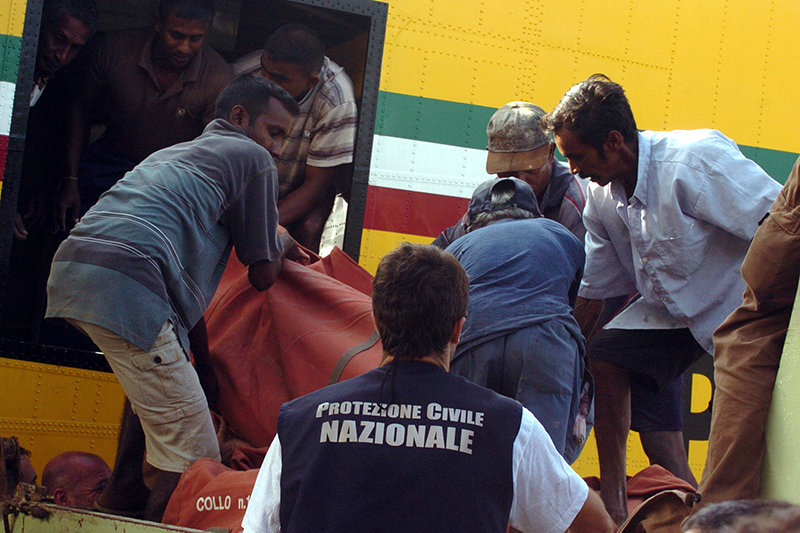Major events and emergencies abroad

With law no. 401, dated 2001, the competence of the State regarding civil protection was assigned to the Prime Minister and determined by Law 225/92 and Legislative Decree 112/98. The newly created Civil Protection Agency was abolished, and the Department of Civil Protection was restored within the Presidency of the Council of Ministers.
The Head of Department performed the operative coordination of all the public and private bodies. Apart from this, the Department promoted – in agreement with the Regions and the local authorities – the performance of exercises, information to the people about national scenarios, and training regarding civil protection. Additionally, a joint State – Regions – Local Authorities Committee was established within the Presidency of the Council of Ministers.
One of the important innovations of the law was the introduction of great events, the declaration of which, as for the state of emergency, implied the use of the ordering power. A final important change from a legal viewpoint was represented by Law No. 152 of 2005, which extended the power of ordering to events abroad again after declaring the state of emergency.
With Law No. 27 of March 24, 2012, the management of major events will no longer fall under the responsibility of civil protection.
Photo: Sri Lanka, aid unloading from an Italian Canadair after the tsunami of 26 December 2004 in South East Asia / Luciano Del Castillo